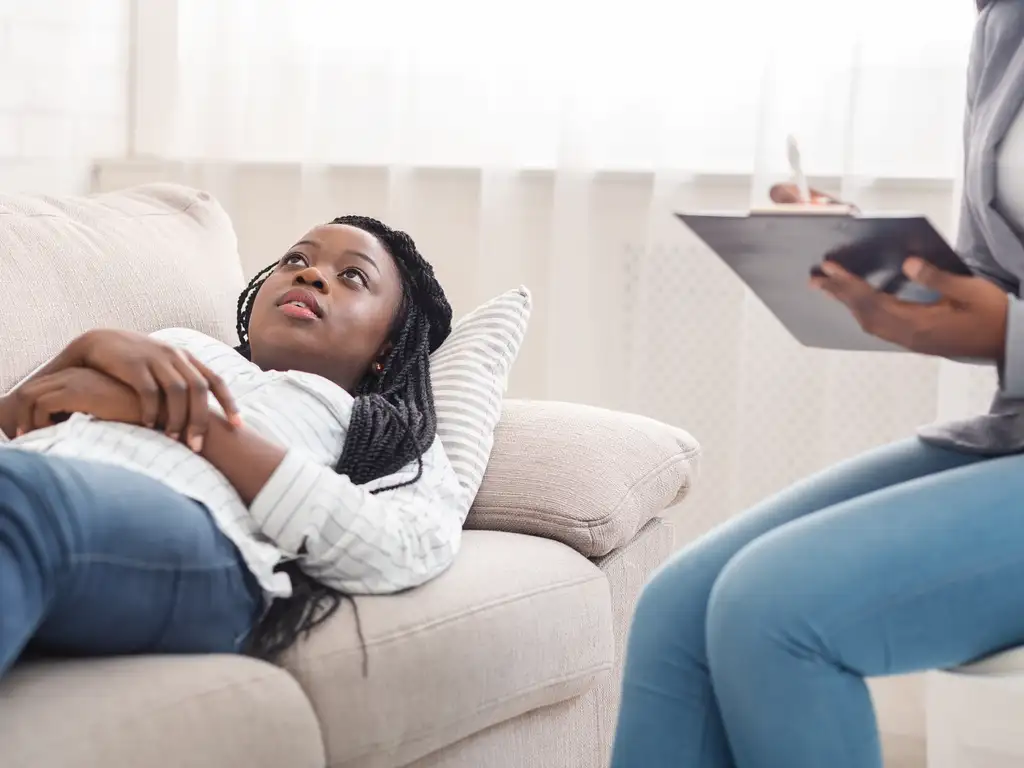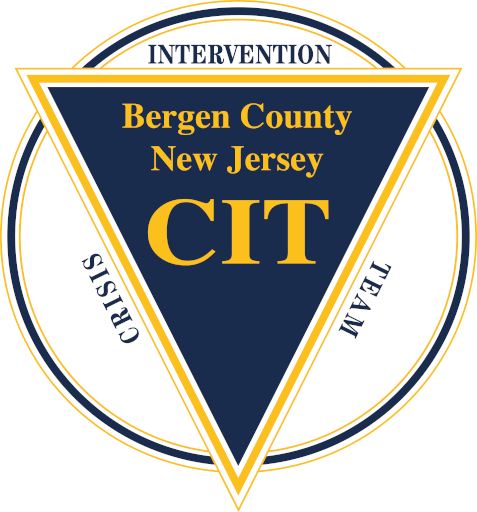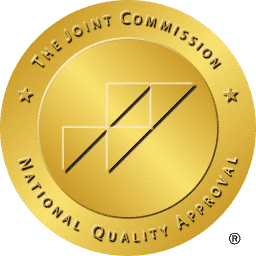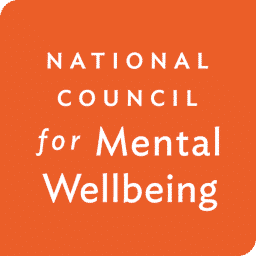Have you ever wondered why ADHD in women seems to be overlooked or misunderstood? It’s time to shed light on this crucial topic and empower women who live with this condition every day. In this blog post, we will explore the unique challenges and impact of ADHD in women, from recognizing the symptoms to finding effective treatment options and support.
Short Summary
- Adult women with ADHD can achieve improved self-esteem and quality of life through recognizing symptoms, understanding the condition, and accessing tailored treatment options.
- Diagnosis should be accurate through medical history assessments, ruling out other conditions, and overcoming gender bias in healthcare.
- Women can gain strength from support networks to manage their symptoms while taking advantage of resources, such as online forums & educational materials for advocacy.

Understanding Attention Deficit Hyperactivity Disorder in Adult Women
When it comes to ADHD, adult women face unique challenges compared to men, with symptoms often manifesting differently and leading to difficulties and impacts on everyday life. Recognizing these differences is an empowering first step for women to gain the help and support they need.
Treatment options for adult women with ADHD include medication management, therapy and counseling, lifestyle changes and self-care, which can also help address the low self-esteem often associated with ADHD.
Prevalence and Under diagnosis
ADHD is prevalent in adult women, 6.76% of all women are affected by the condition. However, under diagnosis is common due to gender biases and cultural expectations of girls and women, which significantly impact the rate of under diagnosis of ADHD and can lead to a lack of access to appropriate treatment.
Undiagnosed ADHD in women can have a detrimental effect on their entire life, including their relationships, finances, and careers, making timely ADHD treatment crucial for improving their quality of life.
The number of privately insured women diagnosed with ADHD diagnoses who filled a medication prescription from 2003 to 2015 had a 344% increase reported by the CDC. This increase may be attributed to improved efforts to diagnose ADHD in women, highlighting a positive shift in recognizing and acknowledging the prevalence in this population.
Impact on Daily Life
ADHD can have a significant impact on adult women’s lives, affecting various aspects such as work, relationships, and mental health. Untreated ADHD can lead to serious risks, such as substance use/addiction, car accidents, eating disorders, and relationship problems, and divorce. Untreated ADHD could reduce life expectancy up to 13 years.
Despite these challenges, ADHD in women can be a powerful challenge that encourages women to strive for their goals and learn from their hyperactive impulsivity symptoms. Many women diagnosed with ADHD face social challenges and need to regulate behaviors, without letting go of the personality traits they love.

Recognizing Symptoms of ADHD in Adult Women
Diagnosing women with ADHD, also known as attention deficit hyperactivity disorder, is derived from certain symptoms. Disruptive behaviors can mask a mood disorder which can complicate diagnosis and treatment.
Women with ADHD vs mood disorders can begin as childhood symptoms and interpreted as a conduct disorder. Hormonal fluctuations, gender expectations and differences, trouble focusing, and even trouble sleeping can be seen as personality disorders when in fact it is an ADHD diagnosis.
ADHD was at one time primarily a male disorder. Hyperactive young boys tend to misbehave and become unmanageable, and were referred to doctors for medication. Early studies based on behaviors of white hyperactive boys helped shape the diagnostic criteria and assessment scales still used today.
ADHD is not a gender based disorder only affecting males. In fact, the impact of attention deficit hyperactivity disorder is greater on women. A recent study of thousands of men and women found 2 of 5 adults with ADHD are in excellent physical health, but women diagnosed with ADHD were less likely to thrive.
Many women with ADHD tend to experience low self esteem, which begins as young girls. Inattentive symptoms, emotional regulation challenges, and co-occurring conditions such as anxiety, depression, and substance abuse often accompany an ADHD diagnoses.
Inattentive Symptoms
Inattentive symptoms of ADHD in women may include forgetfulness, difficulty completing tasks, and lack of attention to detail. These symptoms can often be overlooked or misattributed to other causes, making it essential for women to be aware of them in order to identify and manage their own symptoms. Hormonal systems in females can also have an impact, as they can increase the symptoms of ADHD in women.
Inattentive type ADHD is the most frequent type of ADHD in women. Recognizing each symptom is a crucial step in identifying ADHD and seeking appropriate support and treatment.
Emotional Regulation Challenges
Adult women with ADHD often face emotional regulation challenges, which can lead to mood swings, anxiety, depression, and self-esteem issues. These challenges can make it difficult for women to manage their emotions effectively, leading to increased impulsivity and difficulty stabilizing their moods.
Additionally, ADHD in women is associated with internalizing painful emotions and experiences, which can manifest as anxiety disorder and, in some cases, self-injury or even suicide.
Therapy and counseling can help adult women with ADHD feel empowered by providing support, teaching coping skills, and helping them manage their symptoms to take control of their lives. By understanding their emotional regulation challenges and seeking appropriate support, women with ADHD can work towards overcoming these obstacles and improving their overall mental health.
Co-occurring Conditions
When it comes to adult women diagnosed with ADHD, it is incredibly important to understand co-occurring conditions that typically occur alongside ADHD. Anxiety, depression, and substance abuse are frequently observed simultaneously in adult women with ADHD. These conditions can present a unique set of obstacles to accurately diagnosing and effectively treating ADHD in adult women.
Recognizing and addressing co-occurring conditions is essential for ensuring that adult women with ADHD receive the appropriate care and treatment to manage their symptoms and improve their quality of life. By understanding the presence of these co-occurring conditions, women can seek the necessary support and resources to address both their ADHD and any additional mental health concerns.

Diagnosis Process for Adult Women with ADHD
The diagnosis process for adult women with ADHD involves a thorough medical history assessment, ruling out other conditions, and overcoming gender bias in the healthcare system. By addressing these factors, adult women can get ADHD diagnosed accurately and access the appropriate support and treatment they need to improve their lives.
It is important to note that the diagnosis process for adult women with undiagnosed ADHD is not always straightforward.
Medical History and Assessment
A comprehensive medical history evaluation is crucial for accurately diagnosing ADHD in adult women. This includes asking about symptoms, family history, and any previous treatments. It is important to be mindful that self-diagnosis of ADHD based on symptoms seen on social media could lead to misdiagnosis, as it could be that an underlying thyroid issue causing the symptoms, and there may be more suitable medical alternatives than a stimulant medication.
Telehealth companies have made it easier for individuals to access ADHD assessments and diagnoses, but this can also present potential issues. Doctors working through telehealth companies may not have the necessary expertise to recognize misuse, and there is a risk of individuals faking the diagnosis to get prescription stimulants. It is essential for healthcare providers to conduct thorough assessments and consider all aspects of a patient’s medical history to ensure an accurate diagnosis.
Ruling Out Other Conditions
Ruling out other conditions, such as depression, anxiety, or bipolar disorder, is key to ensuring an accurate ADHD diagnosis in adult women. A comprehensive evaluation of the patient’s medical history, symptoms, and behavior can help identify ADHD symptoms and rule out other potential mental and physical health conditions. Through this evaluation, healthcare providers can ensure that the patient receives an accurate diagnosis and effective treatment.
The process of ruling out other conditions is essential to avoid misdiagnosis, as ADHD symptoms may overlap with those of other conditions. It is important for healthcare providers and patients to be aware of this possibility and approach the diagnostic process with care and thoroughness. By ruling out other conditions and focusing on the distinctive symptoms of ADHD, adult women can receive the accurate diagnosis they need to access appropriate support and treatment.
Overcoming Gender Bias
Overcoming gender bias in the diagnostic process is crucial for ensuring that adult women with ADHD receive appropriate care and treatment. Recognizing that ADHD symptoms in women may look different than in men and educating healthcare providers on these differences can work towards eliminating gender bias when diagnosis ADHD in adult women.
By addressing gender bias and raising awareness of the unique challenges faced by women with ADHD, healthcare providers can better understand and diagnose the condition in adult women. This ensures that women receive the appropriate support and treatment they need to manage their ADHD symptoms and improve their overall quality of life.

Treatment Options for Adult Women with ADHD at CarePlus New Jersey
Treatment options at CarePlus New Jersey for adult women with ADHD include medication management, therapy and counseling, lifestyle changes and self-care. By exploring these options and finding the right combination of treatments, adult women with ADHD can manage their symptoms and improve their overall well-being.
Medication management can help reduce symptoms of ADHD, such as difficulty concentrating, impulsivity, and depression.
Medication Management
Medication management, including stimulants, non-stimulants, and antidepressants, can be highly effective in decreasing ADHD symptoms in adult women when used under professional supervision. Stimulant medications are the go-to treatment for ADHD in adults, offering promising results. Non-stimulant drugs, such as atomoxetine (Strattera), viloxazine (Qelbree), guanfacine ER (Intuniv), and clonidine ER (Kapvay), may also be prescribed to support adult women with ADHD.
However, it is important to be aware of the potential risks of misusing ADHD medications, such as weight loss, increased risks of strokes, high blood pressure, and other cardiovascular problems, particularly for individuals with pre-existing heart conditions. Additionally, there is the risk of addiction, both psychological and physiological, to these medications.
By working closely with the healthcare professionals at CarePlus, adult women with ADHD can manage their medication effectively and safely to control their symptoms.

Therapy and Counseling
Therapy and counseling offered at CarePlus, such as cognitive-behavioral therapy (CBT) and mindfulness-based practices, can empower adult women with ADHD to develop effective coping strategies and enhance their mental wellbeing. A cognitive-behavioral approach can help women identify why they are engaging in certain behaviors and how to modify them, providing insight into their own behaviors and tools to make positive changes.
Finding a therapist familiar with ADHD can be beneficial, as they can ensure that progress isn’t hindered by common ADHD symptoms such as being late, interruptions, or trouble following through on tasks. Cognitive behavior therapy and mindfulness-based practices have been proven to be successful therapeutic methods for adult women with ADHD, providing support and guidance in managing their symptoms and improving their mental health.
Lifestyle Changes and Self-Care
Lifestyle changes and self-care can help adult women with ADHD reach their full potential by providing structure, reducing stress, and helping them stay organized. Getting enough sleep, exercise, and nutrients can be incredibly beneficial for overall well-being and can even help manage ADHD symptoms in adult women.
Using a system to manage tasks, practicing positive self-talk, and using money management software can empower adult women with ADHD to stay organized. Additionally, breaking down tasks into smaller steps and managing stress can help women with ADHD stay focused, effectively manage their symptoms and empower them to reach their goals.
Support and Resources for Adult Women with ADHD
Support and resources for adult women with ADHD include finding a support network, accessing educational materials, and advocating for better understanding and treatment of ADHD in women. By utilizing these resources, women can gain the knowledge, tools, and support they need to manage their ADHD symptoms and improve their overall quality of life.
Women can find support networks through online forums, support groups, and other resources. They can access these platforms where women share their experiences and advice with each other.
Finding a Support Network
Building a support network of friends, family, and professionals can help adult women with ADHD navigate the challenges of living with the condition. Having a support network can provide tremendous emotional support, foster creative problem-solving, and offer valuable resources and information.
There are several online support groups and communities available, such as the Attention Deficit Disorder Association (ADDA), The Kaleidoscope Society, and Women With ADHD Support Group. Additionally, there are books, apps, and organizations like ADHD Aware that can provide valuable support for women affected by ADHD.
By building a strong support network, adult women with ADHD can feel empowered and better equipped to manage their symptoms and challenges.
Educational Materials and Advocacy
Accessing educational materials and resources can empower adult women with ADHD to better understand their condition and advocate for their needs. The Attention Deficit Disorder Association (ADDA) provides inspiring virtual peer support groups for women aged 50 and above, and there are numerous online groups available, including the ADDitude forum specifically for women and girls and The Queens of Distraction, an empowering online group coaching program for women with ADHD.
By accessing these educational materials and resources and advocating for better understanding and treatment, adult women with ADHD can raise awareness of the unique challenges they face and empower themselves to receive appropriate diagnosis and treatment. This, can subsequently improve their overall quality of life and help them manage their ADHD symptoms more effectively.
Summary
In conclusion, understanding ADHD in adult women is vital for empowering them to manage their symptoms and improve their lives. Through recognizing the unique challenges and symptoms encountered by adult women with ADHD, ensuring accurate diagnosis, exploring various treatment options, and accessing support and resources, women with ADHD can overcome obstacles and thrive. By raising awareness and advocating for better understanding and treatment of ADHD in women, we can create a more inclusive and supportive environment for all those affected by this condition.
Women tend to seek help locally when they face mental health conditions. CarePlus New Jersey treats young girls and women. ADHD diagnostic criteria is something our clinicians and psychiatrists are familiar with. If you or a loved one need more information, CarePlus New Jersey welcomes you to schedule an appointment today.
Frequently Asked Questions
What are 3 signs of ADHD in adults?
Adults with ADHD may experience difficulty paying attention, impulsiveness, restlessness, forgetfulness, procrastination, talking excessively and lack of following through on tasks. Signs can range from mild to severe, making everyday tasks more challenging.
Each symptom can interfere with work, school, relationships, and other aspects of life. It is important to understand that ADHD is a real disorder and not just a lack of motivation or discipline. Treatment options include commonly prescribed medications, therapy, lifestyle changes, and support.
How can adult women receive an accurate diagnosis for ADHD?
All women can receive an accurate ADHD diagnosis by engaging in a thorough medical history assessment, ruling out other conditions, and challenging any gender bias in healthcare.
This process requires a comprehensive evaluation, family history, and lifestyle. It is important to consider any potential gender bias in the diagnosis and treatment of ADHD, as women are often misdiagnosed.
What treatment options are available for adult women with ADHD?
Women with ADHD can benefit from a combination of medication management, therapy and lifestyle changes to help manage each symptom and improve overall well-being.
Medication management can help reduce inattention, hyperactivity, and impulsivity. Therapy can help to address underlying issues that may be contributing, such as anxiety or depression and help individuals make lifestyle changes and develop coping skills to manage their symptoms when they occur.
How can adult women with ADHD build a support network?
For adult women with ADHD, connecting with friends, family, professionals, and online support groups is a great way to find emotional support and resources for managing the condition.
These connections can help provide a sense of understanding and acceptance, as well as provide helpful tips and strategies for managing symptoms. They can also help to reduce feelings of isolation and loneliness that can accompany living with ADHD.
What resources and educational materials are available to help adult women with ADHD better understand their condition?
Women with ADHD can get valuable information and support from resources like the Attention Deficit Disorder Association (ADDA), The Kaleidoscope Society, Women With ADHD Support Group, books, apps, and organizations like ADHD Aware in the UK.
These resources can provide helpful information about diagnosis, treatment, and lifestyle management. They can also provide support from other women with ADHD who understand the unique challenges that arise from the condition.
Sources:
https://www.nbcnews.com/health/health-news/adhd-women-symptoms-overlooked-rcna60240
https://my.clevelandclinic.org/health/diseases/24741-adhd-in-women
https://www.additudemag.com/adhd-in-women-misunderstood-symptoms-treatment/
https://add.org/adhd-in-women/
https://www.psycom.net/adhd/adhd-in-women
https://chadd.org/advocacy-blog/new-research-suggests-untreated-adhd-reduces-life-expectancy/
https://pubmed.ncbi.nlm.nih.gov/32787804/
https://www.kaleidoscopesociety.com/

Lorelle Holway, MSW, LCSW is the Vice President of Hospital and Community Services at CarePlus New Jersey.
During the past 17 years, Lorelle performed in a variety of roles, including Case Manager, Certified Mental Health Screener, Clinician, Clinical Manager, and Program Manager/Director. She possesses a clinical social work license to practice in NJ and is a certified SIFI Instructor and Clinical Supervisor. Lorelle has been providing therapy to individuals and families, with a focus on crisis and couples counseling. In addition, Lorelle has provided mentorship and supervision to many clinicians throughout her tenure, and has played a key role in developing and facilitating trainings on various mental health topics, to both internal staff and community members.









